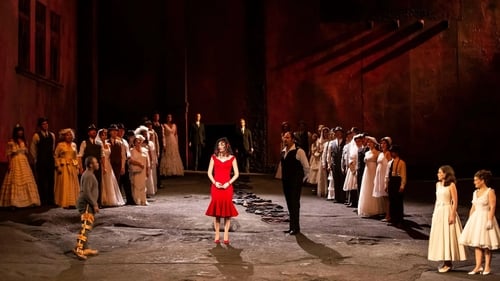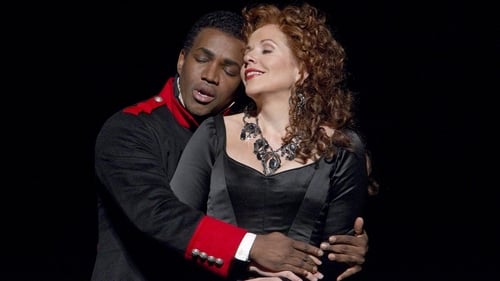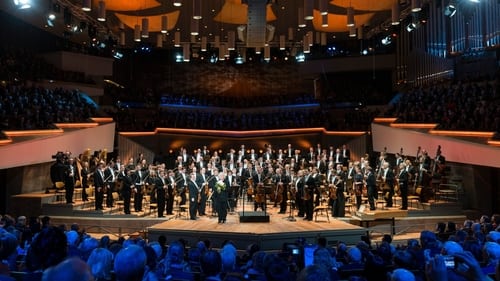
COUNT ALMAVIVA
When Rosina falls in love with mysterious young suitor Lindoro, she must use all her cunning – and a little help from her local barber – to outwit her calculating guardian Dr Bartolo. Expect heart-melting serenades, ridiculous disguises and a fairytale ending waiting just out of reach. From the barber’s opening number ‘Largo al factotum,’ with its cry of ‘Figaro!,’ to Rosina’s feisty aria ‘Una voce poco fa,’ Gioachino Rossini’s comic opera is a riotously entertaining affair. Rafael Payare makes his House debut, and joins Christopher Willis in conducting a cast that includes Andrzej Filończyk, Aigul Akhmetshina, Laurence Brownlee, Konu Kim and Bryn Terfel.

In its most ambitious effort yet to bring the joy and artistry of opera to audiences everywhere during the Met’s closure, the company presented an unprecedented virtual At-Home Gala, featuring more than 40 leading artists performing in a live stream from their homes all around the world.

Don Ramiro
Divested of its traditional attributes – glass slipper and pumpkin carriage – and dominated by a tyrannical stepfather instead of a cruel stepmother, Rossini’s la Cenerentola plays with these most conventional of fairy‑tale characters. Nonetheless Cinderella lives in a closed world devoid of tenderness and under the yoke of the tormentor whom she protects. Deep beneath her goodness smoulders a fire that her encounter with the prince will set free… Guillaume Gallienne subtly highlights the halftones of this dramma giocoso, somewhere between opera buffa and opera seria, and ranging from sombre melancholy to the burlesque.

Ernesto
First performed in Paris in 1843, at the turning point of several eras, Don Pasquale, a composite and varied work, is the apotheosis of opera buffa. Performed for the first time at the Paris Opera, the production has been entrusted to the Italian director, Damiano Michieletto, who transports us directly to the sincerity and dramatic splendour at the heart of an apparently light‑hearted work.

Ernesto
“Foolish indeed is he who marries in old age.” Thus ends Don Pasquale: with a wise dictum not lacking in irony that sums up the disappointments of its hero, a rich bachelor keen to marry who is deceived by his nephew Ernesto and his young bride-to-be Norina. First performed in Paris in 1843, at the turning point of several eras, Don Pasquale, a composite and varied work, is the apotheosis of opera buffa. Performed for the first time at the Paris Opera, the production has been entrusted to the Italian director, Damiano Michieletto, who transports us directly to the sincerity and dramatic splendour at the heart of an apparently light‑hearted work.

The Gran Teatre del Liceu’s 2017/2018 season opened with Rossini’s dramma giocoso Il viaggio a Reims, the “event piece” written exclusively for the coronation of France’s Charles X in Reims in 1825. Apart from the Rossini Opera Festival in Pesaro (one of the co-producers), this otherwise infrequently performed work has received a bright yet perhaps over-minimalist staging by Emilio Sagi. A fixed set portraying the sun deck and furnishings of a spa hotel (using only the stage front) provides the opera’s eclectic group of European aristocrats an unexpectedly informal aspect from the outset, replete with bathrobes, towels and slippers. This is novel, but confuses the audience as to who is who in the story. Not until the end of the second act, an hour and a half into the performance, does the cast change to more formal dining attire and the audience has a minimally clearer idea of the different nationalities (and idiosyncracies) portrayed.

Idreno
Queen Semiramide is haunted by the ghosts of her past. Together with her lover Assur, she once murdered her husband King Nino; a deed which ever since has weighed heavily upon her. With her marriage to Arsace, she hopes her soul will at last find solace. Her love, however, is misplaced. Arsace not only loves another, he is also, as is later revealed, the son Semiramide and Nino believed to be dead. He is faced with a decision: should he avenge the death of his father – and thus become his mother's killer?

Ernesto
A young student, Ernesto, who lives with his old bachelor uncle, Don Pasquale, has refused to wed the woman of his uncle’s choosing because he is in love with a young widow, Norina. Pasquale has decided to punish Ernesto by getting married and fathering an heir, thereby cutting off his nephew without a penny. Dr. Malatesta, a friend of Pasquale as well as Ernesto and Norina, has devised a plan to both save Pasquale from his folly and help the young couple.

Il Conte Almaviva
The composer's opera buffa transcends the spirit of Beaumarchais’ comedy and combines the absurd with a touch of satirical realism in a score where rhythm and virtuosity place the comic effects in an ongoing dramatic narration. As a result, the characters – Rosina in particular – gain a new degree of realism and break with the usual archetypes. Damiano Michieletto’s giddying production embraces this perpetual motion and carries in its wake the happy couple formed by Lawrence Brownlee and Pretty Yende.

Count Almaviva
A youthful cast brings Rossini’s immortal comedy to sparkling life, led by Christopher Maltman as Figaro, the resourceful barber and man-about-town of the title. The lovely Isabel Leonard is Rosina, the clever young woman at the center of the story, and Lawrence Brownlee sings Count Almaviva, the man who loves her and—with Figaro’s help—rescues her from the house of her elderly and smitten guardian, Bartolo, played by Maurizio Muraro. Paata Burchuladze is the bumbling music master Basilio, and rising conductor and bel canto specialist Michele Mariotti leads the Met’s musical forces in Bartlett Sher’s lively production.

Rinaldo
It is a rare opera indeed that calls for one soprano diva and no fewer than six tenors. Mary Zimmerman’s fanciful production of Rossini’s drama, designed by Richard Hudson and with choreography by Graciela Daniele, provides the perfect setting for superstar Renée Fleming’s captivating performance of the title role. A beautiful but evil sorceress in the times of the Crusades, Armida sets out to regain the love of the Frankish knight Rinaldo (Lawrence Brownlee) by putting her magical spells on him. She at first succeeds to draw him into her web of sorcery, but ultimately divine intervention—and his fellow soldiers—free Rinaldo from his enchantment—much to the vengeful fury of Armida and her demons.

The Prince, Don Ramiro
"Irresistible" (Opera News) rising-star mezzo Elina Garanca triumphs as Rossini's Cinderella in this delightful Metropolitan Opera production. "As close to pure joy as you will find in a big-time opera house" (New Yorker), conquering audiences and critics alike, "Garanca has a gorgeous voice that she uses with exceptional skill, melting tenderness; but when the part calls for coloratura fireworks, she unleashes a flawless technique and ringing high notes of impressive power" (Associated Press). Filmed in High Definition Widescreen.

Tenor
The annual New Year’s Eve Concert is one of the highlights in the calendar of every classical music fan in Berlin and beyond. On New Year‘s Eve, the Berliner Philharmoniker invite an exceptional soloist for a festive gala. Together, the musicians bid farewell to the old year and welcome the new. The 2004 concert was conducted by Simon Rattle and featured Sally Matthews (soprano), Lawrence Brownlee (tenor), Christian Gerhaher (baritone), Rundfunkchor Berlin, Knabenchor des Staats- und Domchores Berlin. On the programme: Ludwig van Beethoven: Leonore - Overture, Carl Orff: Carmina Burana.

Tenor












